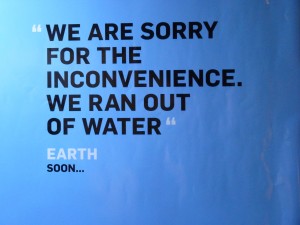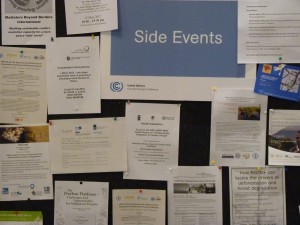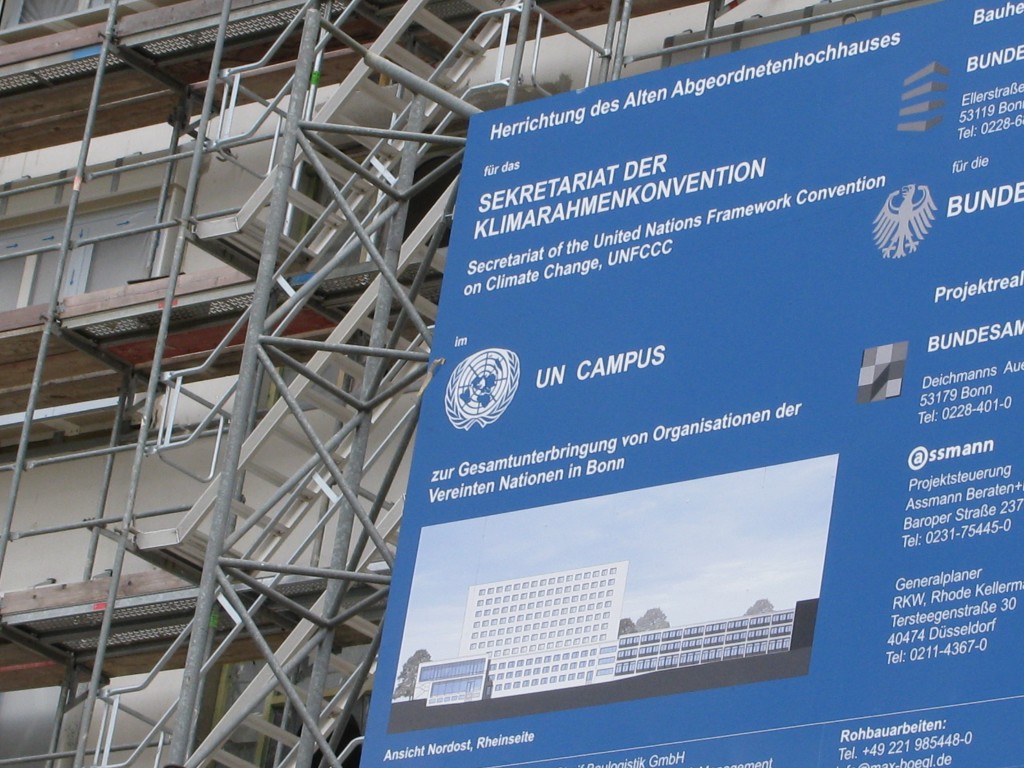Earth – Closed for shortage of water?
I’m in Brussels at the moment for the EU’s annual environment policy conference, the Green Week. Every Drop Counts: Water is the focus this year, in keeping with 2012 as International Water Year and in the run-up to the earth summit in Rio in June. Once again the message is that water is involved in or affected by just about all our human activities. So protecting our water supplies has to be a part of policies on agriculture, energy or urbanisation. And it has to be tackled globally. And as consumers of products that have a huge water footprint, we consumers have a role to play. Everybody is calling for a networked approach, looking at the nexus of water, energy, food security. This is a recurrent theme at environment gatherings I’ve attended over the past year. Is this thinking finding its way into policy and practice, I wonder?
A growing population and rapid climate change are putting our water supplies under huge pressure. One speaker said that as early as 2030 the world’s demand for freshwater will exceed supply by around 40% and 50% of the world’s population will live in regions with water shortages. Shocking? More later between sessions.
And if you’re interested in the organisation whose water shortage poster at the stand is on the photo, you’ll find it at formatoverde Their business is education for sustainability. The link is to the English website.
Peatlands … on the fringes of the Bonn climate talks
The talks going on in Bonn right now are an “intersessional climate session”, i.e. talks between the talks… aimed at making progress on the issues to be decided at the next round of climate changes talks “proper” which will be held in Doha in Qatar at the end of the year. I would not have the patience these negotiators need, with the talks crawling along at what would seem to your average person to be a snail’s pace, considering the speed with which climate change is actively affecting our planet. It’s not easy to get countries to commit to emissions reductions, rainforest protection, financing for developing countries etc. But while the different working groups meet, filling the conference rooms of a large Bonn hotel and the nearby German Federal Environment Ministry, different organisations take the chance to publicise their work and new practical initiatives to work against global warming, in the corridors and foyers and in numerous “side-events”, which for me as a journalist are one of the most interesting things to follow at these gatherings.
![]() read more
read more
Climate agreement… under construction
Building work is continuing, to convert a building to host the expanding UN climate secretariat (UNFCCC) close to our Deutsche Welle offices here in Bonn. It strikes me as symbolic of what’s happening a few blocks away at the latest round of international climate talks. There, construction work to create a new international climate agreement continues to make slow progress. The meeting, which will continue until the end of next week, is the first since the Durban Climate Change Conference at the end of last year. The head of the UNFCCC Christina Figueres stressed at the start that there is still a gap between the agreed goal of a maximum 2 degrees C. rise in temperature (which an increasing number of experts are saying is not enough anyway) and the current global efforts. It’s hard to be optimistic. The negotiators have their work cut out for them.
I’ll be going round to the talks shortly to catch up on what’s been happening. Your ice blogger was on holiday for a couple of weeks, so apologies for the lack of updates. More on what’s happening at the Bonn climate meeting soon. Meanwhile, you might like to listen to this week’s edition of Living Planet, where there is a report I produced about the urgent necessity for adaptation to climate change. There are also some related stories on the website:
How much scepticism can the climate take?
Cities gird themselves for climate change
Changes at Germany’s Environment Ministry
New threat to Antarctic Ice shelf
Warm ocean currents are melting Antarctic ice
 Recent ice loss from Antarctica was mainly caused by warm ocean currents, according to a team of scientists led by British Antarctic Survey. In an article for the journal NATURE this week, they explain how they used new techniques to differentiate for the first time between the two known causes of melting ice shelves – warm ocean currents attacking from below and warm air melting from above. One worrying thing is that this means “we can lose an awful lot of ice to the sea without ever having summers warm enough to make the snow on top of the glaciers melt – the oceans can do all the work from below” says Dr. Hamish Pritchard from BAS, lead author of the report.
Recent ice loss from Antarctica was mainly caused by warm ocean currents, according to a team of scientists led by British Antarctic Survey. In an article for the journal NATURE this week, they explain how they used new techniques to differentiate for the first time between the two known causes of melting ice shelves – warm ocean currents attacking from below and warm air melting from above. One worrying thing is that this means “we can lose an awful lot of ice to the sea without ever having summers warm enough to make the snow on top of the glaciers melt – the oceans can do all the work from below” says Dr. Hamish Pritchard from BAS, lead author of the report.
The warm water melting the ice sheets is causing inland glaciers to speed up and discharge masses of ice into the sea. The reason the water is warming, is probably because of changes in wind patterns, caused in turn by changes in climate. This would mean “Antarctica’s glaciers are responding rapidly to a changing climate” says Pritchard.
Most of the ice shelves being melted by warm ocean currents are in West Antarctica. On the eastern Antarctic Peninsula the shelf thinning found by the study can be explained by warmer summer winds directly melting the snow on the ice shelves.
The results will help improve projections of future sea-level rise.
More here on the website of the British Antarctic Survey
Polar bears evolved earlier than previously thought

Polar bear genome shows they evolved much earlier than previously thought. Picture by Alan Wilson, www.naturepicturesonline.com
A team of scientists led by researchers from the German Biodiversity and Climate Research Centre (BiK-F) has found out that polar bears evolved as early as some 600,000 years ago. The study, published in the current issue of the journal “Science”, ( Nuclear Genomic Sequences Reveal that Polar Bears Are an Old and Distinct Bear Lineage, Hailer, F. et.al) says the white giants are thus five times older than previously realised.
Why do we need to know this apart from pure scientific curiosity? Because knowing when polar bears evolved as a genetically distinct species, different from brown bears, could help us understand what is going to happen to the polar bears if the planet keeps heating up. You can read more about how the scientists came to their conclusions and what implications they could have here.
























Feedback